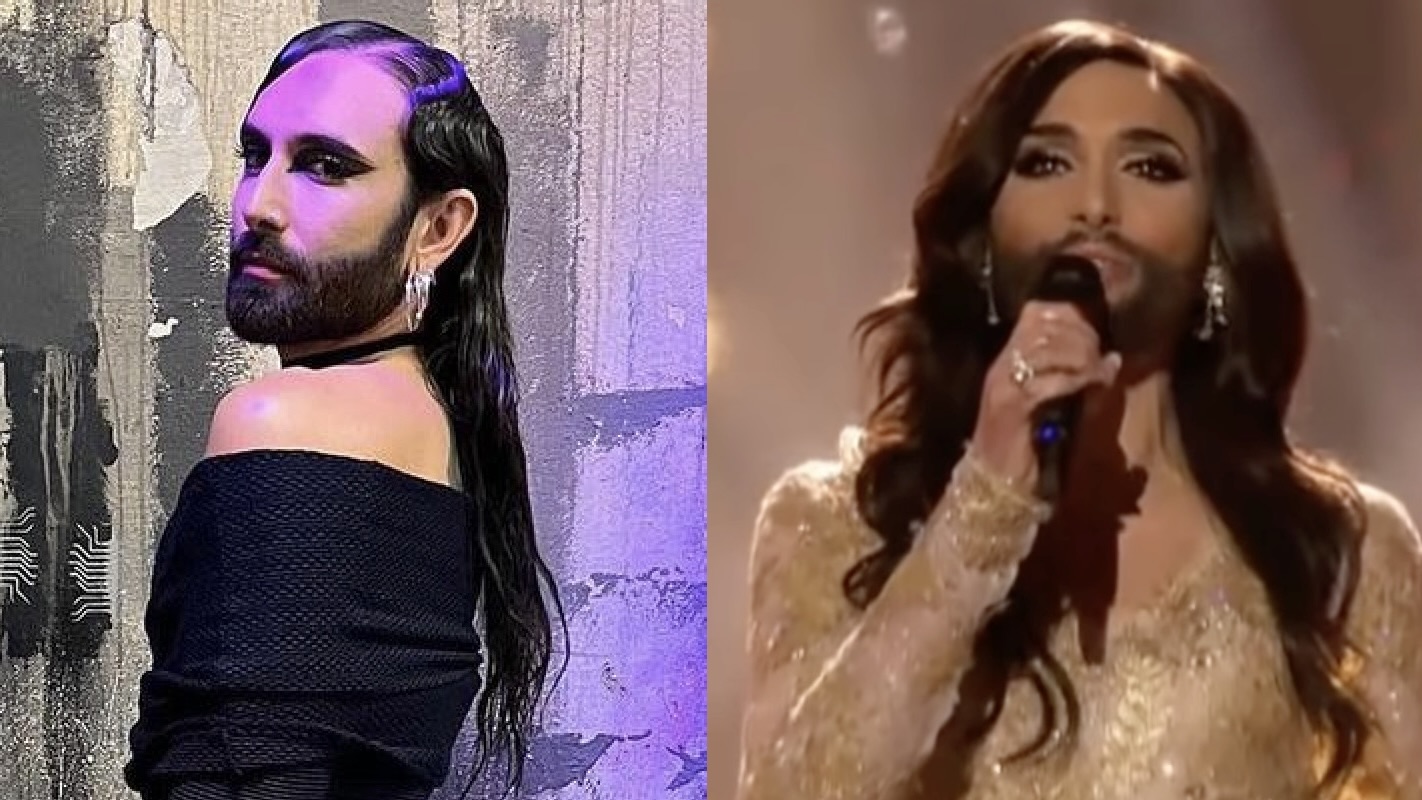Conchita Wurst shares it took nearly 10 years for her 2014 Eurovision victory to sink in
Exclusive: The 'Rise Like a Phoenix' singer told Attitude: "I think I just emotionally realised it, like, two months ago."

It’s hard to believe it’s nearly 10 years since Conchita Wurst was crowned the winner of The Eurovision Song Contest. And it seems as if we’re not the only ones thinking that! Conchita is too!
The Austrian, 34, stormed to Eurovision glory with her iconic track ‘Rise Like A Phoenix’.
However, it would appear that victory has only just sunk in for Wurst, who told Attitude exclusively as much ahead of Eurovision 2023’s Semi-Final 2.
“I think I just emotionally realised it, like, two months ago,” she said.
She went on to describe a moment in the run-up to Eurovision 2023 where she was interviewed and asked about her 2014 win.
“I found myself in the hotel room. And I went through the moment when I performed and the winning and I really tried to remember anything that I could.
“I started to cry because I remember when I was walking out for the first time before one note would leave my lips, everybody went ballistic,” she said.
Continuing, she added of her whole Eurovision experience: “It’s overwhelming, the support and the love. I think that it almost took me 10 years to really, finally, feel this moment because it’s so intense and also too much in the situation I feel.”
“Those people who don’t understand individuality or are not for it, are triggered even harder than ever”
We can certainly imagine so. The ‘Firestorm’ singer also discussed the conversation around her winning in 2014 and the progress that’s happened since.
“We’ve come a long way, I would say. Especially back then around 2014 I think there was my win, then RuPaul’s Drag Race [was] really taking off. This kind of was the start of a very queer era.
“And now, the queer community has quite a strong stand in the mainstream industry. The acceptance is bigger than ever before.”
Referencing the rise in anti-LGBTQ rhetoric worldwide, Conchita pointed out that better queer representation had also had negative consequences.
“Those people who don’t understand individuality or are not for it, are triggered even harder than ever. This is why it is so intense at the moment.”
She added: “I feel that we are on, I don’t want to say it’s a tipping point but it is definitely a very strong conversation, if there is a conversation. We just need to stay strong and unapologetic. I think that this is the way we have to go.”
